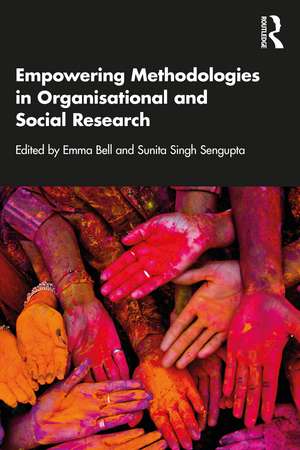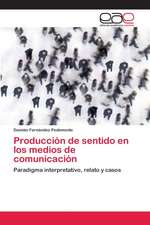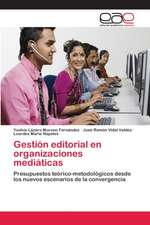Empowering Methodologies in Organisational and Social Research
Editat de Emma Bell, Sunita Singh Senguptaen Limba Engleză Paperback – 31 dec 2021
In a context of global academic precarity, this volume explores why empowering research is urgently needed. It discusses the situatedness of knowing and knowledge in the context of core-periphery relations between the global North and South. The book considers the sensory, affective, embodied practice of empowering research, which involves listening, seeing, moving and feeling, to facilitate a more diverse, creative and crafty repertoire of research possibilities. The essays in this volume examine crucial themes including:
· How to decolonise management knowledge
· Using imaginative, visual and sensory methods
· Memory and space in empowering research
· Empowerment and feminist methodologies
· The role of reflexivity in empowering research
By bringing postcolonial perspectives from India, the volume aims to revitalise management and organisation studies for global readers. This book will be useful for scholars and researchers of management studies, organisational behaviour, research methodology, development studies, social sciences in general and gender studies and sociology.
| Toate formatele și edițiile | Preț | Express |
|---|---|---|
| Paperback (1) | 350.12 lei 6-8 săpt. | |
| Taylor & Francis – 31 dec 2021 | 350.12 lei 6-8 săpt. | |
| Hardback (1) | 1001.07 lei 6-8 săpt. | |
| Taylor & Francis – 31 dec 2021 | 1001.07 lei 6-8 săpt. |
Preț: 350.12 lei
Nou
Puncte Express: 525
Preț estimativ în valută:
66.100€ • 70.13$ • 55.76£
66.100€ • 70.13$ • 55.76£
Carte tipărită la comandă
Livrare economică 31 martie-14 aprilie
Preluare comenzi: 021 569.72.76
Specificații
ISBN-13: 9780367370596
ISBN-10: 036737059X
Pagini: 210
Ilustrații: 15 Halftones, black and white; 15 Illustrations, black and white
Dimensiuni: 156 x 234 x 16 mm
Greutate: 0.3 kg
Ediția:1
Editura: Taylor & Francis
Colecția Routledge India
Locul publicării:Oxford, United Kingdom
ISBN-10: 036737059X
Pagini: 210
Ilustrații: 15 Halftones, black and white; 15 Illustrations, black and white
Dimensiuni: 156 x 234 x 16 mm
Greutate: 0.3 kg
Ediția:1
Editura: Taylor & Francis
Colecția Routledge India
Locul publicării:Oxford, United Kingdom
Public țintă
PostgraduateCuprins
1. Empowering methodologies in organisational and social research 2. Decolonising management knowledge and research: Reflections on knowledge, processes and actors 3. A decolonial feminist ethnography: Empowerment, ethics and epistemology 4. Vulnerability as praxis in studying social suffering 5 .Drawing one’s lifeworld: A methodological technique for researching bullied child workers 6. Creative memory, methodology, and the postcolonial imagination 7. Drawing together, thinking apart: Reflecting on our use of visual participatory research methods 8. Autoethnography and personal experience as an epistemic resource 9. Affective, embodied experiences of doing fieldwork in India: A feminist’s perspective 10. From doing, to writing, to being in research
Notă biografică
Emma Bell is Professor of Organization Studies at The Open University, UK.
Sunita Singh Sengupta is Professor of Leadership and Organizational Studies at the University of Delhi, India.
Sunita Singh Sengupta is Professor of Leadership and Organizational Studies at the University of Delhi, India.
Recenzii
“This is a welcome and much-needed volume in Organization Studies, where the drive towards conformity seems relentless. Three major issues stand out: the focus on the importance of situated and plural forms of knowing in a global context; the need for empowering research by challenging mainstream epistemological commitments and values; and the need for researchers to recognise that we and those we research are human, with feelings and senses.
In a beautiful range of chapters that take us out of conventional organisational settings, the authors explore indigenous and participatory forms of knowing and researching that foreground the lived experience of participants. The chapters address important social problems from a range of methodological perspectives. For example, Devi Vijay studies the experience of palliative care through Butler’s notion of vulnerability, Premilla D’Cruz, Ernesto Noronha, Saikat Chakraborty and Muneeb Ul Lateef Banday give voice to children employed as child labour through visual methods, and Srinath Jagannathan and Premalatha Packirisamy use autoethnography to reflect on their experience of becoming parents while being academics. Each chapter offers a rich narrative that stimulates you to reconsider conventional methodological values and practices.”
– Ann Cunliffe, Fundacao Getulio Vargas-EAESP, Brazil
“From the title onwards you know that this is going to be an important read. This is a book that not only informs the reader of the ‘how to’ aspects of research methods but their emancipatory potential.”
– Albert J. Mills, University of Eastern Finland
“Turning current efforts to repoliticize critical management and organisation research into an opportunity for reinvigorating the field, this brilliantly clever and thought-provoking volume is exactly what our community needs. Bell and Sengupta adeptly guide the reader through a beautiful collection of chapters, which in each their unique way speak to the kinds of researchers we want to be(come) and who we are writing for. Through honest, reflexive, and responsible accounts the volume centers voices of people who are all too often othered, oppressed or exploited, bringing to the fore their lived concerns, fears or aspirations while also problematising the very concepts of ’center’ and ‘voice’, so as not to naturalise or romanticise the speaking subject. The contributing authors not only write about the sensory, affective, embodied practice of empowering research, it is felt through the text. Individually, and in combination, these contributions offer poignant invitations to critical scholars to become more response-able, to paraphrase Emmanuel Levinas, in seeking to diversify research practices and decolonise social scientific knowledge production.”
– Sarah Louise Muhr, Copenhagen Business School, Denmark
In a beautiful range of chapters that take us out of conventional organisational settings, the authors explore indigenous and participatory forms of knowing and researching that foreground the lived experience of participants. The chapters address important social problems from a range of methodological perspectives. For example, Devi Vijay studies the experience of palliative care through Butler’s notion of vulnerability, Premilla D’Cruz, Ernesto Noronha, Saikat Chakraborty and Muneeb Ul Lateef Banday give voice to children employed as child labour through visual methods, and Srinath Jagannathan and Premalatha Packirisamy use autoethnography to reflect on their experience of becoming parents while being academics. Each chapter offers a rich narrative that stimulates you to reconsider conventional methodological values and practices.”
– Ann Cunliffe, Fundacao Getulio Vargas-EAESP, Brazil
“From the title onwards you know that this is going to be an important read. This is a book that not only informs the reader of the ‘how to’ aspects of research methods but their emancipatory potential.”
– Albert J. Mills, University of Eastern Finland
“Turning current efforts to repoliticize critical management and organisation research into an opportunity for reinvigorating the field, this brilliantly clever and thought-provoking volume is exactly what our community needs. Bell and Sengupta adeptly guide the reader through a beautiful collection of chapters, which in each their unique way speak to the kinds of researchers we want to be(come) and who we are writing for. Through honest, reflexive, and responsible accounts the volume centers voices of people who are all too often othered, oppressed or exploited, bringing to the fore their lived concerns, fears or aspirations while also problematising the very concepts of ’center’ and ‘voice’, so as not to naturalise or romanticise the speaking subject. The contributing authors not only write about the sensory, affective, embodied practice of empowering research, it is felt through the text. Individually, and in combination, these contributions offer poignant invitations to critical scholars to become more response-able, to paraphrase Emmanuel Levinas, in seeking to diversify research practices and decolonise social scientific knowledge production.”
– Sarah Louise Muhr, Copenhagen Business School, Denmark
Descriere
This book explores the meaning and practice of empowering methodologies in organisational and social research. In a context of global academic precarity, this volume explores why empowering research is needed and discusses the situatedness of knowing and knowledge in the context of core-periphery relations between the global North and South.






